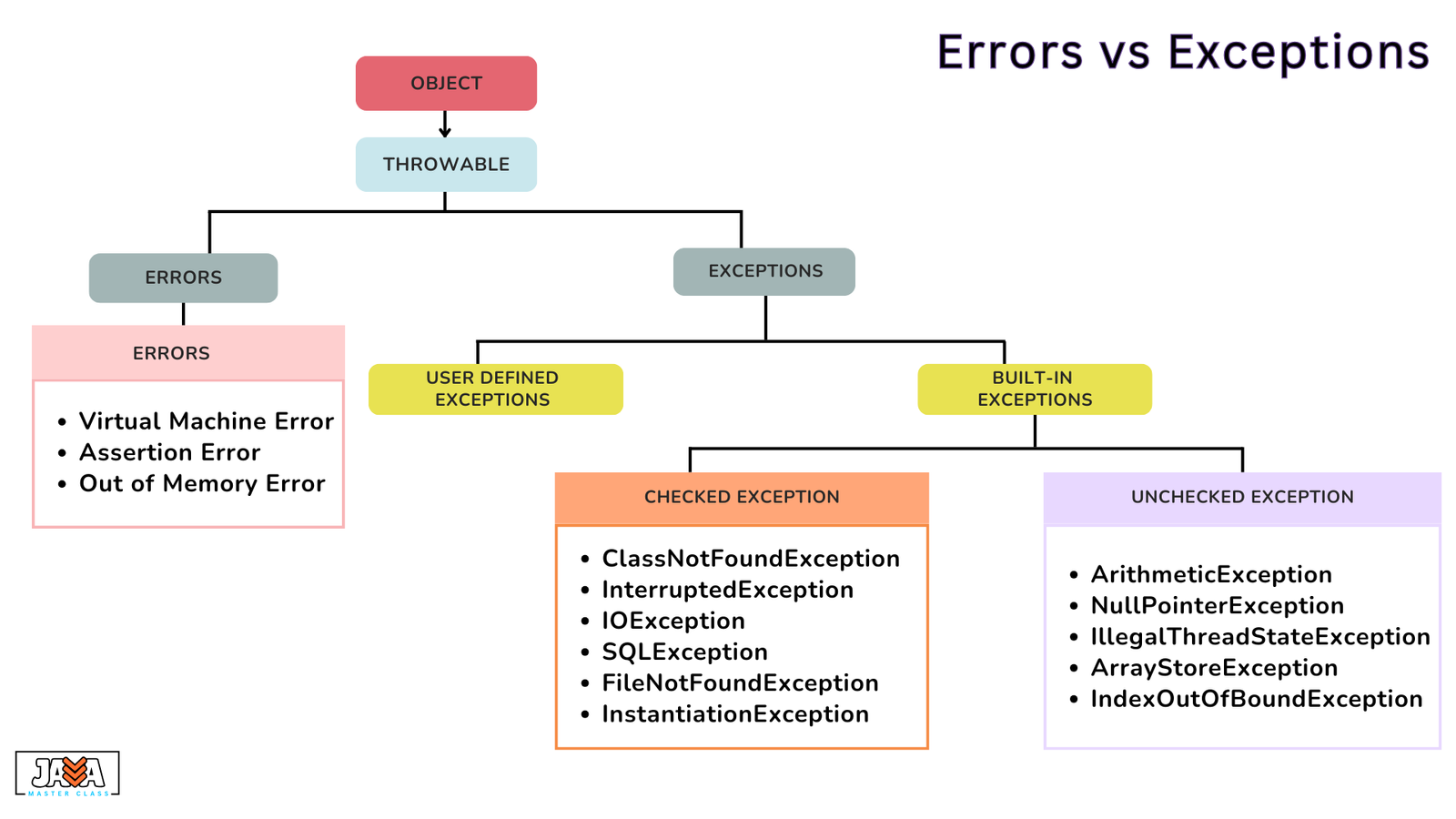In Java, error handling is an important part of writing robust and reliable programs. Two fundamental types of issues can occur during the execution of a program: Errors and Exceptions. Although they might seem similar, they have distinct differences and serve different purposes.

Error
An Error in Java represents a severe problem that typically occurs outside the control of the application. Errors are usually caused by the environment in which the application is running. These problems generally indicate conditions that are not recoverable.
Some common examples of errors are:
- OutOfMemoryError: This occurs when the Java Virtual Machine (JVM) runs out of memory.
- StackOverflowError: This happens when the stack for a thread overflows, usually due to excessive deep recursion.
Java’s Error class is a subclass of Throwable. Errors are typically not handled by the program itself because they indicate issues that are almost always beyond the program’s control.
Exception
An Exception, on the other hand, represents an issue that occurs during the execution of a program. Exceptions can be handled, which allows the program to recover from certain types of problems. An exception can be caused by various factors, such as invalid user input, a file not being found, or a network failure.
Exceptions are divided into two main categories:
- Checked Exceptions: These are exceptions that the compiler forces us to handle. For example, if we’re reading from a file, the program must handle the
IOExceptionto deal with the possibility that the file may not exist or be accessible. - Unchecked Exceptions: These are exceptions that occur at runtime and are not checked by the compiler. The most common unchecked exceptions are subclasses of
RuntimeException, such asNullPointerExceptionorArrayIndexOutOfBoundsException.
Differences Between Errors and Exceptions
In Java, there are two primary categories of issues that can occur during the execution of a program: Errors and Exceptions.
| Criteria | Error | Exception |
|---|---|---|
| Nature | Severe, beyond program control | Often recoverable, caused by program logic or environment conditions |
| Subclass of | Throwable | Throwable |
| Handled by Code | Generally not handled (not recoverable) | Can be caught and handled by the program |
| Example | OutOfMemoryError, StackOverflowError | IOException, NullPointerException |
